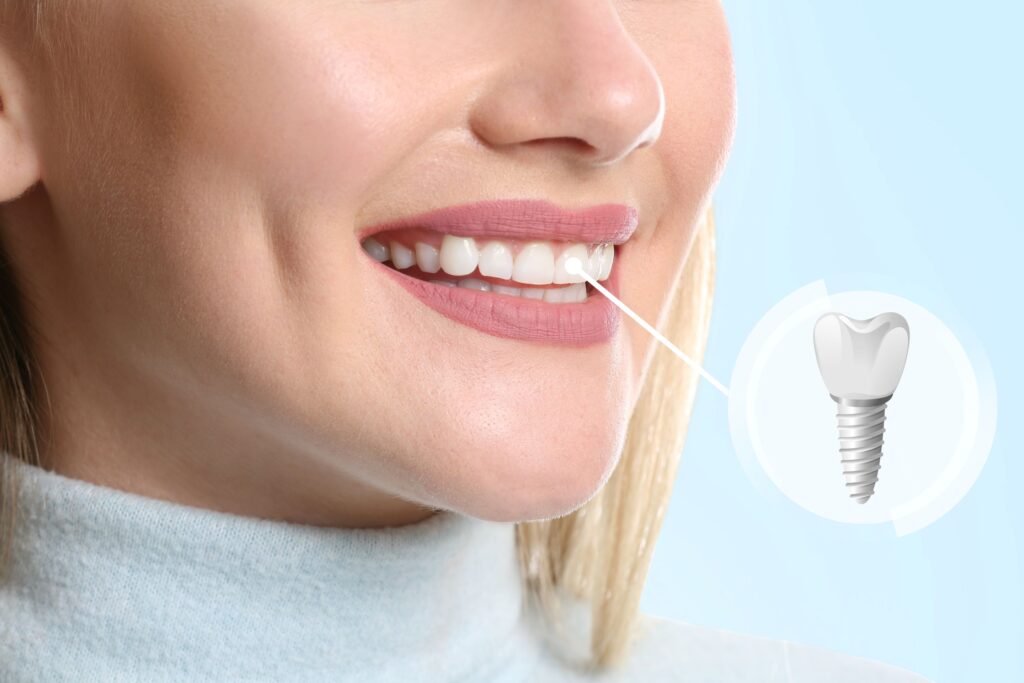
Many experts consider dental implants the ideal way to replace missing teeth because of their unique placement in the jawbone. This makes them stronger and sturdier than alternatives, like dentures or dental bridges.
However, many patients have questions about what to expect from their new teeth. For instance, it’s natural to wonder whether they can develop tooth decay. If you’re concerned, continue reading to learn whether dental implants can get cavities and how to maintain them!
What Are Dental Implants Made From?
Dental implants have a reputation for being nearly as strong as, if not stronger than, natural teeth because they include a support pole that’s surgically embedded directly into your jaw. It takes three to six months to recover after this procedure because your mouth must generate enough new bone growth to fuse with the titanium or ceramic that it’s usually made from.
Once this mends sufficiently, you’ll have another procedure to place an abutment on top of the pole. This connector piece is often made from the same biocompatible option as the pole: ceramic or titanium.
Then, your dentist provides a lifelike restoration, such as a dental crown, made from porcelain or resin that reflects light like enamel. These materials can also be customized to match the shade of your natural grin for seamless results.
Can Dental Implants Get Cavities?
Cavities occur when bacteria in your mouth penetrate your enamel and erode the protective outer layer of your teeth. Because dental implants are not made from the same organic materials, you don’t have to worry that they’ll develop decay. But that doesn’t mean that you no longer need to worry about your oral health. Common oral issues, like tooth decay and periodontal disease, can damage the tissues holding your new tooth in place to cause harm.
For example, the leading cause of failure is a pervasive form of gum disease known as peri-implantitis. If germs in your mouth infect your connective tissues around the surgical site, they can cause irritation and inflammation that leave it without a firm enough foundation. As a result, it can become destabilized or dislodged altogether.
Not only that, but any remaining teeth are just as susceptible to tooth decay as ever. Unfortunately, cavities are contagious and can spread to nearby enamel or even your jawbone. Over time, untreated tooth decay can weaken this firm foundation, potentially leading to further tooth loss.
How Should I Maintain My Oral Health with Dental Implants?
To preserve your new tooth, you should continue brushing and flossing twice daily to remove harmful plaque and bacteria that contribute to common dental concerns. Be sure not to press too deeply into the socket of your implant, as this could damage the seal that anchors it in place.
It’s also recommended that you visit your dentist every six months for a routine checkup and cleaning. This allows them to monitor your condition to catch and treat any areas of concern, like inflamed gums, before they can progress.
Meet the Author
Dr. Christel Cochell has two decades of experience helping families in Salem build and maintain happy, healthy smiles. She earned her Doctor of Dental Medicine at Oregon Health & Sciences University in Portland and then completed the Synergy Training Program, which included education in planning and restoring dental implants. She partners with local implant specialists for increased accuracy, then combines a caring and compassionate approach with state-of-the-art equipment to design and place lifelike restorations meant to last. If you want to replace missing teeth, you can request a consultation on the website or by calling (503) 585-8688.
